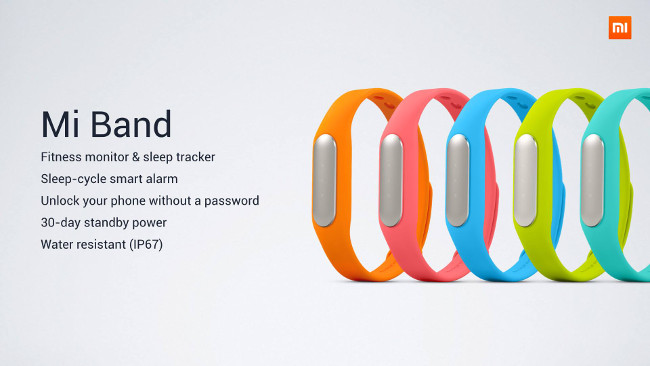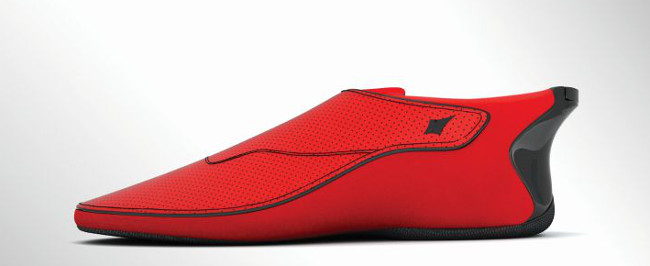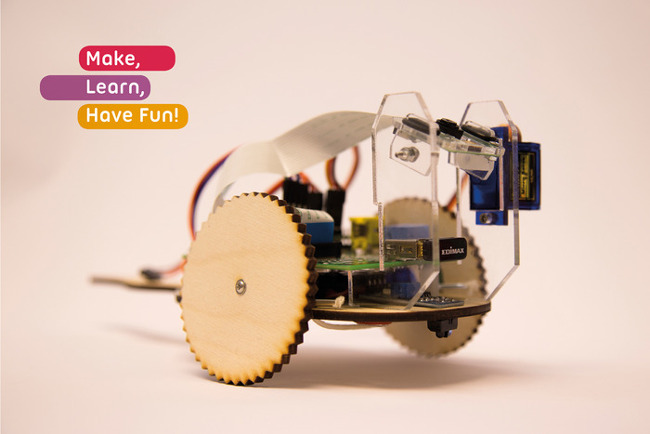Xiaomi's Mi Band (via Xiaomi on Facebook)
A look at gadget happenings, as Xiaomi releases a truly affordable wearable, TiddlyBot gets funded and shoes get smart.
Xiaomi’s sub-€10 fitness band
Xiaomi’s first wearable – which was announced alongside the Mi 4 smartphone at an event in Beijing last week – is a fitness monitor and sleep tracker costing only 79 Chinese yuan renminbi, which equates to less than €10.
The Mi Band features sensors to track activity, count calories burned and act as an alarm clock based on the wearer’s sleep cycle. It comes with 30 days’ standby power on a full charge and is IP67-certified water resistant. The lightweight band comes in a variety of colours but doesn’t have a screen so all interaction comes via the Mi Band Android app.
The Mi Band can also unlock a Xiaomi smartphone and future plans include turning it into a personal ID to unlock the wearer’s door when they arrive home or switch on smart appliances and gadgets.

A breakthrough in flexible, printed batteries
California start-up Imprint Energy is making something that could help the likes of Xiaomi and other wearables-makers: a long-lasting, bendable and rechargeable battery that can be printed inexpensively using common industrial screen printers.
Most batteries powering electronics contain lithium, a highly reactive oxygen-sensitive substance that must be shielded, which adds size and bulk to these components. Zinc is more stable, but water-based electrolytes in zinc batteries can short the battery.
According to MIT Technology Review, Imprint Energy co-founder Christine Ho has developed a solid polymer electrolyte that avoids this problem while also providing greater stability and enhanced capacity for recharging. It’s a revelation, as, currently, thin-film lithium batteries have limited capacity and are expensive to manufacture, while other printed batteries are non-rechargeable.
In terms of flexibility, Imprint Energy’s ultrathin zinc-polymer batteries survived up to 1,000 bending cycles in the company’s test rig. The batteries have also been tested in wrist-worn devices but the company envisions the technology having use beyond this segment, in medical devices, smart labels for food and packaging, environmental sensors, clothing or even the eye.
Vibrating shoes for navigation
Wearable technology has largely focused on the wrist and head, but what about the feet? Step up Indian start-up Ducere Technologies, which has developed a pair of smart shoes fitted with navigation technology that can direct wearers on their travels.

Lechal (which means ‘take me along’ in Hindi) is the brand name for this Interactive Haptic Footwear which uses vibrations in either the left or right shoe to indicate a turn. Expected to launch in September, there will also be Lechal in-soles so that users can take this technology into a wider range of footwear.
The US$150 shoes can also record the path taken, count calories burned by activity, bookmark locations and let the wearer know if they have left their connected smartphone behind. Ducere has also committed to subsidise one pair for a visually challenged individual for every pair bought.
Raspberry Pi robot gets Kickstarter funding
TiddlyBot, a robot that encourages higher order thinking skills, has closed its Kickstarter campaign with an extra US$10,000 to its US$27,000 goal.

Developed by Bristol-based designers Agilic, TiddlyBot was built to bring young creators into the digital age and to teach them about problem-solving, robotics and programming in Python and Javascript. With the help of a low-cost Raspberry Pi computer board (not included in the kit), users can build their own dinky robot that can draw and follow lines, output a live wireless video feed and be controlled via a web interface from a smartphone, tablet or any computer with a browser.
‘Tiddles’ comes in a range of colours as well as a sustainable wood version and funds raised through the Kickstarter campaign will support research into the many ways this little DIY robot and other Raspberry Pi bots can be used to enhance STEM education.
Stay informed – get daily updates on the latest happenings in technology directly to your inbox.